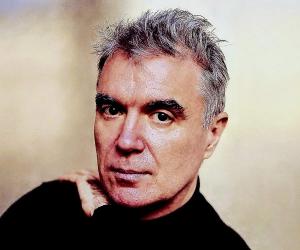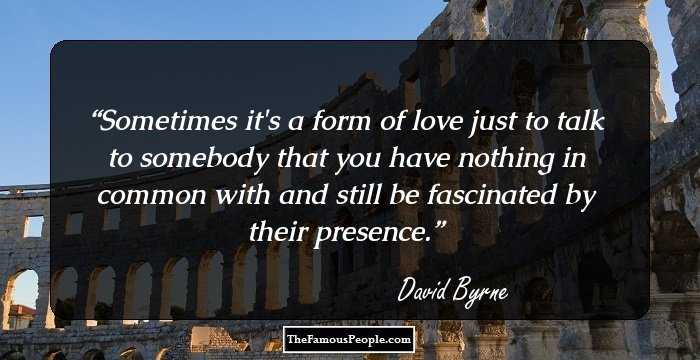
Sometimes it's a form of love just to talk to somebody that you have nothing in common with and still be fascinated by their presence.
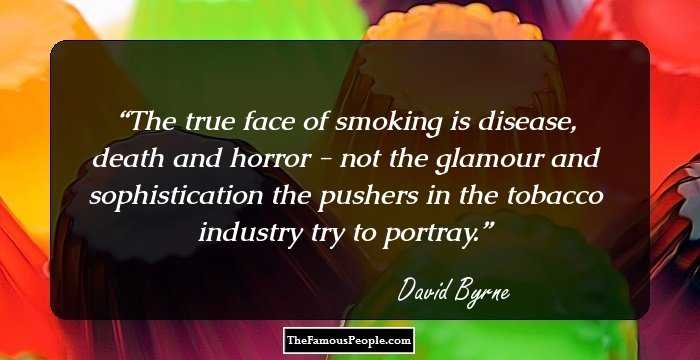
The true face of smoking is disease, death and horror - not the glamour and sophistication the pushers in the tobacco industry try to portray.
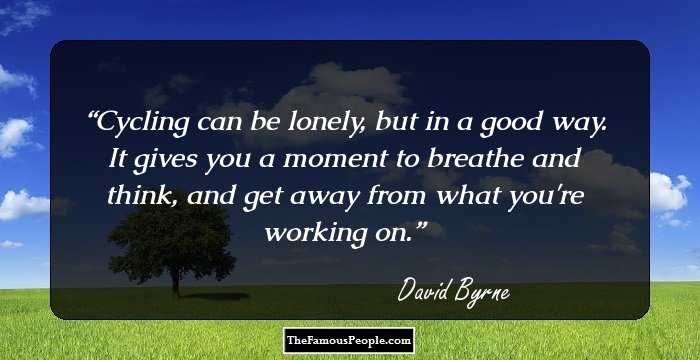
Cycling can be lonely, but in a good way. It gives you a moment to breathe and think, and get away from what you're working on.
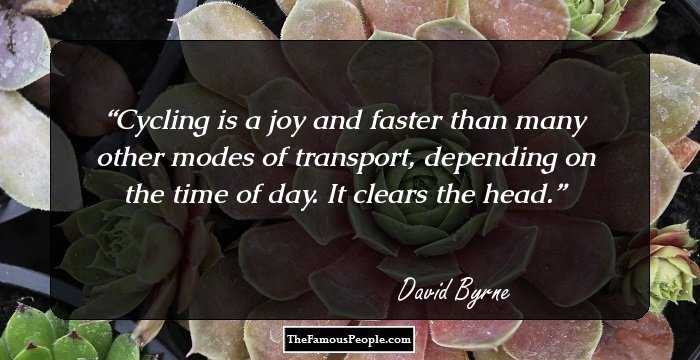
Cycling is a joy and faster than many other modes of transport, depending on the time of day. It clears the head.
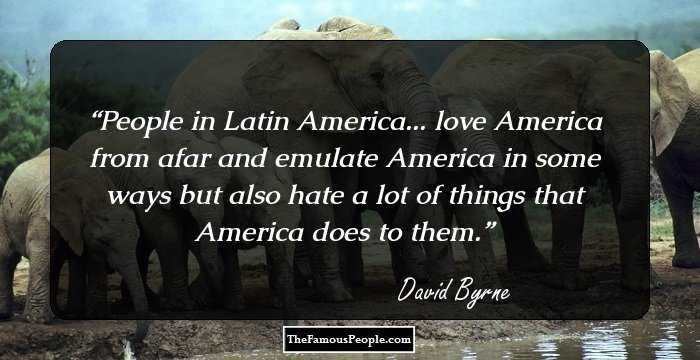
People in Latin America... love America from afar and emulate America in some ways but also hate a lot of things that America does to them.
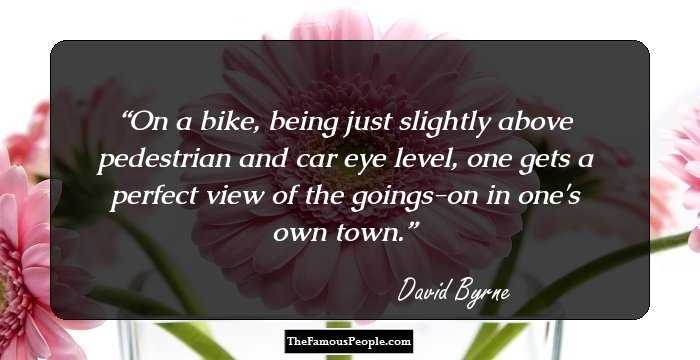
On a bike, being just slightly above pedestrian and car eye level, one gets a perfect view of the goings-on in one's own town.
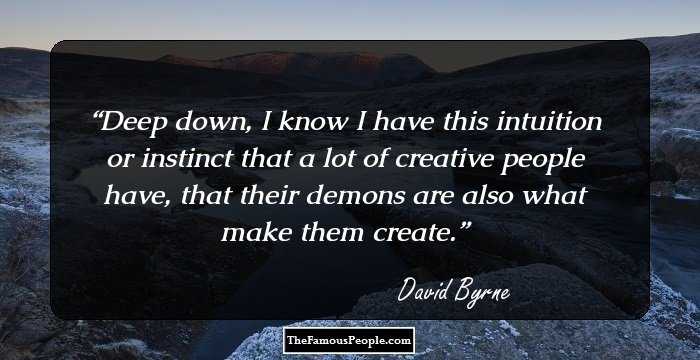
Deep down, I know I have this intuition or instinct that a lot of creative people have, that their demons are also what make them create.
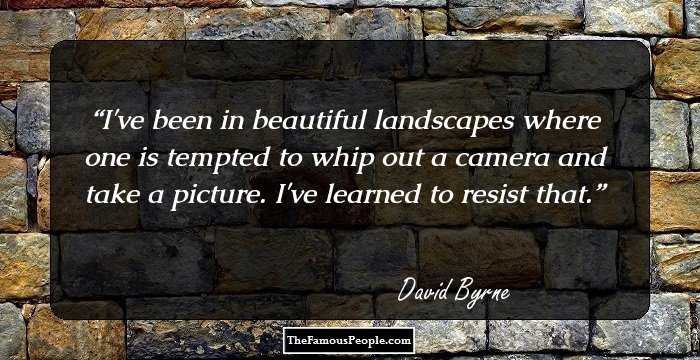
I've been in beautiful landscapes where one is tempted to whip out a camera and take a picture. I've learned to resist that.
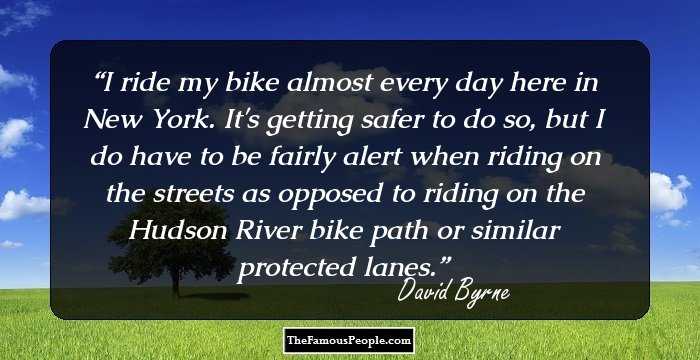
I ride my bike almost every day here in New York. It's getting safer to do so, but I do have to be fairly alert when riding on the streets as opposed to riding on the Hudson River bike path or similar protected lanes.
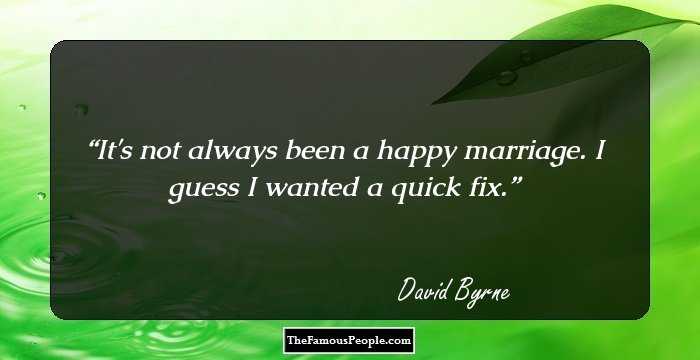
It's not always been a happy marriage. I guess I wanted a quick fix.
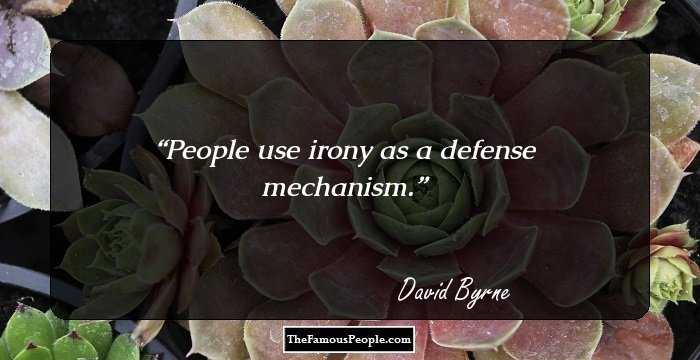
People use irony as a defense mechanism.
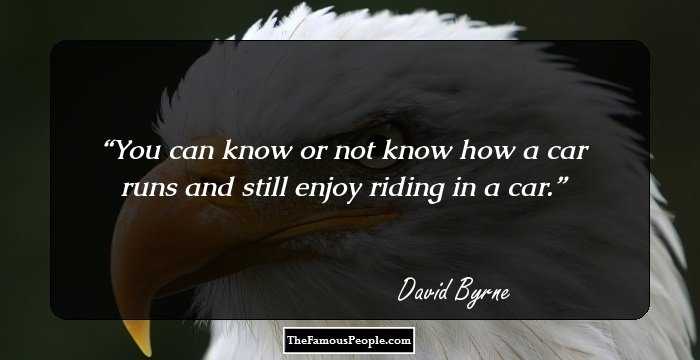
You can know or not know how a car runs and still enjoy riding in a car.
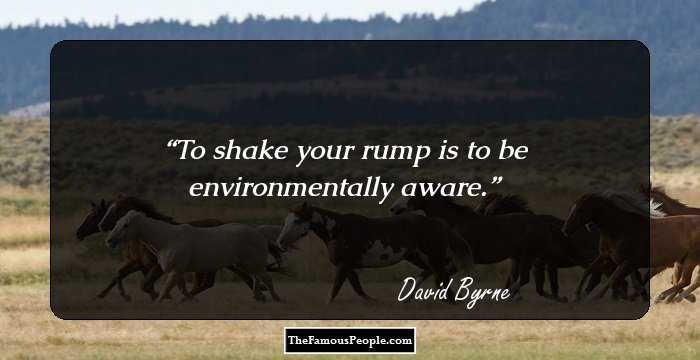
To shake your rump is to be environmentally aware.
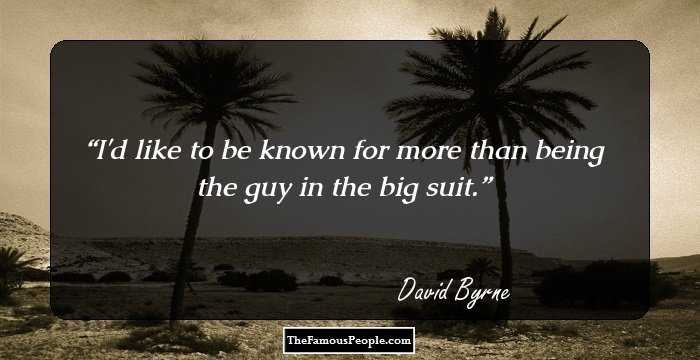
I'd like to be known for more than being the guy in the big suit.

I don't like begging money from producers.
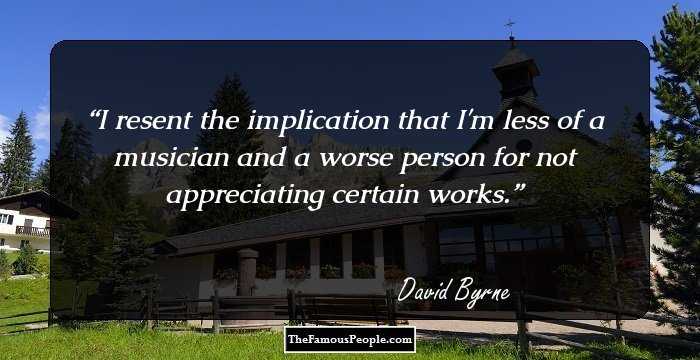
I resent the implication that I'm less of a musician and a worse person for not appreciating certain works.
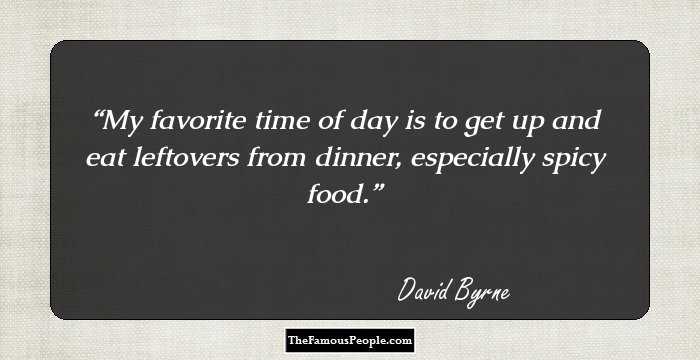
My favorite time of day is to get up and eat leftovers from dinner, especially spicy food.
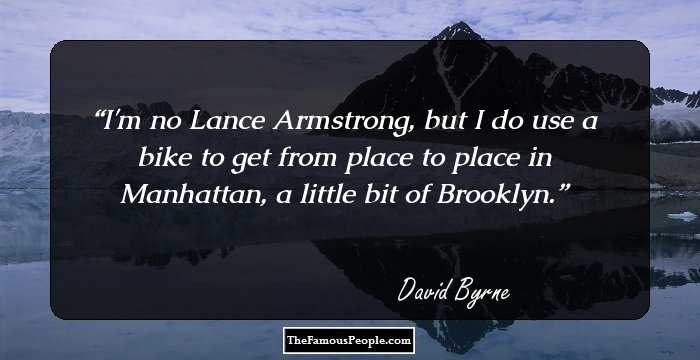
I'm no Lance Armstrong, but I do use a bike to get from place to place in Manhattan, a little bit of Brooklyn.
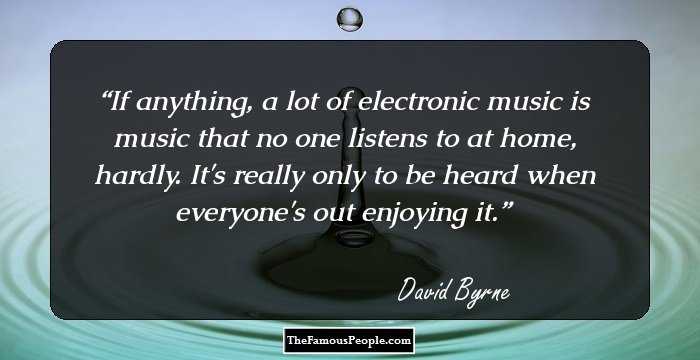
If anything, a lot of electronic music is music that no one listens to at home, hardly. It's really only to be heard when everyone's out enjoying it.
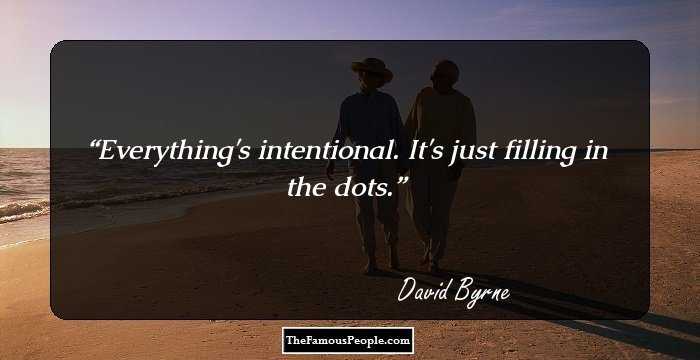
Everything's intentional. It's just filling in the dots.
Do I wear a helmet? Ugh. I do when I'm riding through a precarious part of town, meaning Midtown traffic. But when I'm riding on secure protected lanes or on the paths that run along the Hudson or through Central Park - no, I don't wear the dreaded helmet then.
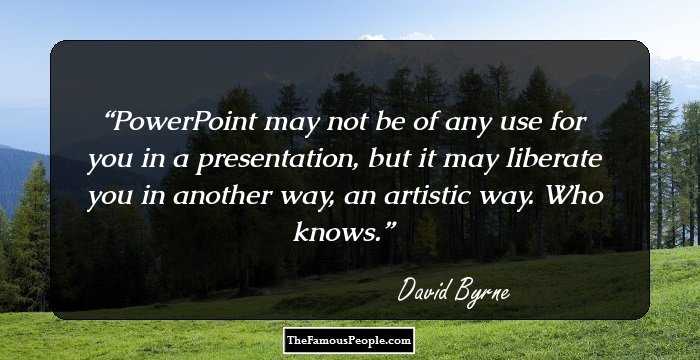
PowerPoint may not be of any use for you in a presentation, but it may liberate you in another way, an artistic way. Who knows.
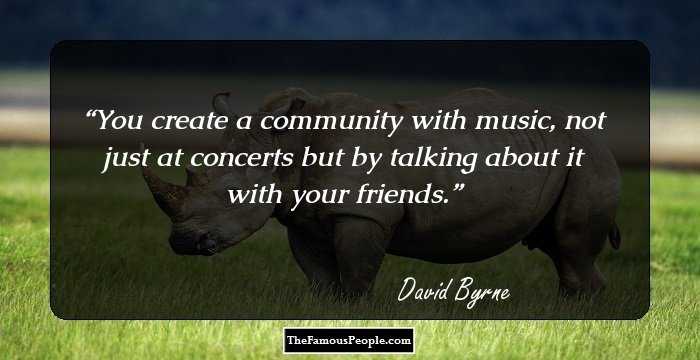
You create a community with music, not just at concerts but by talking about it with your friends.
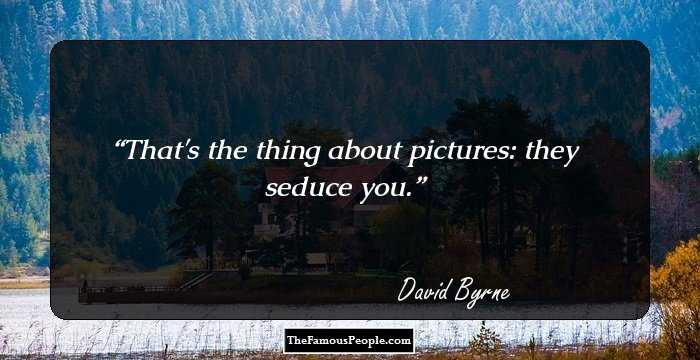
That's the thing about pictures: they seduce you.
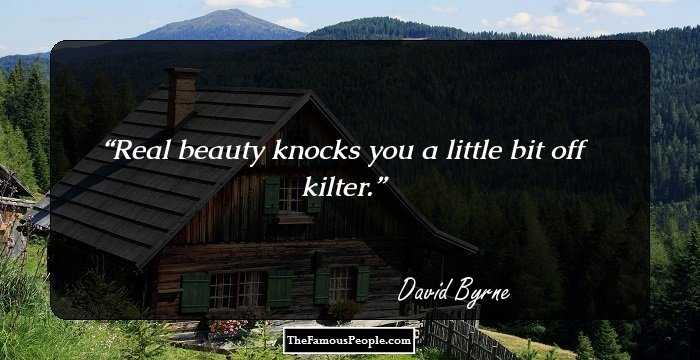
Real beauty knocks you a little bit off kilter.
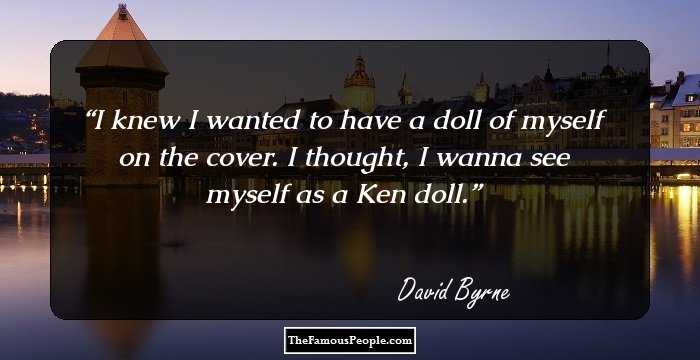
I knew I wanted to have a doll of myself on the cover. I thought, I wanna see myself as a Ken doll.
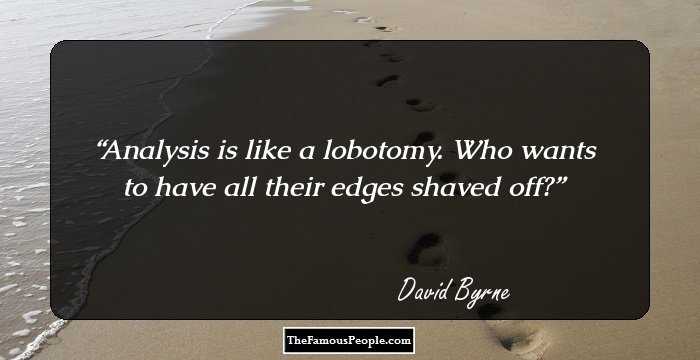
Analysis is like a lobotomy. Who wants to have all their edges shaved off?

I certainly agree that putting everything into little genres is counterproductive. You're not going to get too many surprises if you only focus on the stuff that fits inside the box that you know.
There's a certain amount of freedom involved in cycling: you're self-propelled and decide exactly where to go. If you see something that catches your eye to the left, you can veer off there, which isn't so easy in a car, and you can't cover as much ground walking.
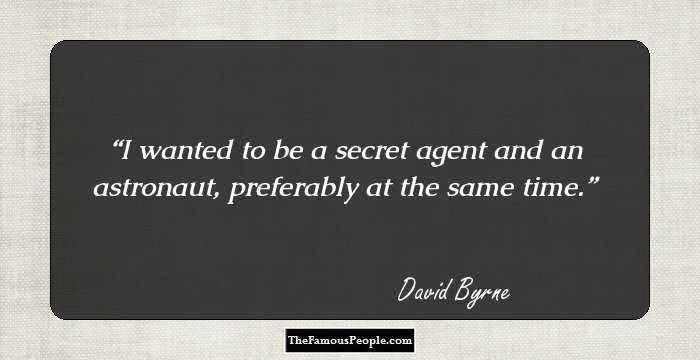
I wanted to be a secret agent and an astronaut, preferably at the same time.

